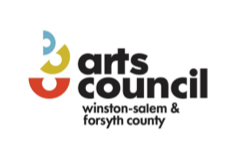Becca Stevens / Jeff Black / Joe Thrift
Becca Stevens

Since making her debut with the 2008 album Tea Bye Sea, singer/songwriter/multi-instrumentalist Becca Stevens has tested the limits of musical identity; mining everything from jazz to Irish folk to indie-rock in her work to strive for complete and authentic expression. In her latest musical endeavor—WONDERBLOOM —the North Carolina-bred, Brooklyn-based artist again defies all expectation; this time dreaming up a groove-heavy, dance-ready sound infused with elements of pop, funk and R&B. Yet despite its bright textures and uptempo rhythms, WONDERBLOOM finds Stevens achieving a profound complexity in her lyrics, ultimately redefining what’s possible in creating music that elevates and edifies.
Centered on the captivating vocal presence she’s showcased as a member of David Crosby’s Lighthouse Band, WONDERBLOOM illustrates an unabashed joy that Stevens attributes in part to the project’s production. In a bold new turn for her musical career, Stevens co-produced and co-engineered WONDERBLOOM alongside Nic Hard (Snarky Puppy, Ghost-Note, The Church); overseeing every aspect of the recording and claiming a sense of agency that had long eluded her in the studio. ?“Nic and I truly worked as equals, trusting each other to get the job done. It was an incredibly empowering experience for me,” she says.
In another major departure, Stevens purposely brought a communality to the making of WONDERBLOOM—an undertaking that resulted in more than 40 acclaimed musicians contributing to the album, including Vulfpeck guitarist Cory Wong, longtime collaborator Jacob Collier and all members of The David Crosby Lighthouse band (keyboardist Michelle Willis, Snarky Puppy bandleader Michael League and David Crosby himself). “My earlier records were written solely by me and arranged by me. Only then would they be performed by me with the band,” says Stevens. “But going into making this record, I made a rule for myself that any time I had the instinct to turn inward and tough it out alone, I would instead stay open and share the process. And each time I did, I was rewarded tenfold by what we created together. Even with so many collaborators, the end result feels more honest than ever.”
In selecting songs from the dozens of demos she’d recorded in recent years, Stevens narrowed her selection to 14 tracks rooted in her finely-detailed, emotionally-layered storytelling. “Some of the stories told on this record are very personal; some are from other people’s lives, and the rest are a bit more like fantasy,” she says. Co-written with Grammy-nominated musician Kaveh Rastegar, WONDERBLOOM’s lead single “Good Stuff” represents the album’s autobiographical component, emerging as a distinctly timely anthem. “It’s a song about things I’ve experienced personally in my career, and it underlines the struggles that so many women face in this industry,” Stevens says. Proving her ingenuity as a songwriter and performer, Stevens transforms those struggles into a triumphant pop epic, channeling a radiant confidence in her vocal delivery and embedding the song with soul-stirring gospel harmonies - which?took shape from Michael Mayo’s immense vocal talent as he layered 64 unique vocal takes comprised of 50 different personalities and vocal timbres.
A far more darkly-toned track, “I Will Avenge You” shows the immense depth of Stevens’s imagination. “That was inspired by a script that Michael Showalter sent me for a pilot he was directing/producing called ‘In The Dark,’ explains Stevens, referring to the actor/producer who directed the Oscar-nominated 2017 film The Big Sick. “The show is about an alcoholic/self-destructive blind woman who’s determined to solve the murder of a young drug dealer who saved her life.” With its jagged guitar work and mesmerizing vocal performance, “I Will Avenge You” attains a cinematic intensity all its own, gracefully unfolding as a narrative of irrepressible power and raging passion.
While much of WONDERBLOOM embodies the sheer effervescence of tracks like “Good Stuff,” the album ends on the heavy-hearted meditation of “Heather’s Letters to Her Mother” - a beautifully slow-building piece written for Heather Heyer, the 32-year-old woman killed while peacefully protesting at the 2017 white-nationalist rally in Charlottesville. “David Crosby and I were on the tour bus one day, and he challenged me to find a song in the moment when Heather met the driver of the car that took her life… that these two humans should have met in some other way… any other way,” Stevens remembers. “After trying a thousand approaches to the song, I ended up thinking of the lyrics as little messages from Heather to her mother, leading up to the event and then finally from beyond the grave asking her mother to finish what she started.” Quietly heartbreaking and ineffably tender, the starkly arranged six-minute track takes on a subtle hope as a choir of children (including Stevens’s nieces and nephews, Hard’s teenage daughters, Crosby, Willis and Michael “Maz” Maher) lend their voices to the song’s breathtaking finale.
All throughout WONDERBLOOM, Stevens imbues her songs with unfiltered emotion, an effect achieved through equal parts spontaneity and intentionality. “I set a goal for myself from the beginning of this project to be more direct; both lyrically and musically,” she says. “I have a tendency to overthink and over-edit, but for this record I really challenged myself to simply say what I wanted to say and leave it at that.” Driven by a desire to “create music that allows and inspires me to be real, raw, and human when I perform it,” Stevens introduced a deliberate physicality into her performance. In recording the album-opening “Low on Love,” for instance, she conjured the track’s delicate ennui by lying down on the studio floor. “I was depressed and run ragged when I recorded my original home demo, so it felt right to get back to that energy tracking the vocals in the studio,” says Stevens.
Although most of WONDERBLOOM came to life in Brooklyn, Stevens journeyed to Los Angeles, North Carolina, and France in order to capture certain performances. Those travels included a trip to Paris to work with harpist Laura Perrudin, where the two musicians spent five days holed up in Perrudin’s apartment. “Laura is like some kind of mad-scientist fairy,” Stevens says. “She’d sit there turning knobs on her pedals, then take a shish-kebab skewer and put it to the strings and whack it with a padded drumstick, and suddenly it sounded like Satan’s cocktail party or something. “Laura created so many other worldly sounds like nothing I’d ever heard before.”
In reflecting on the six-month-long process of recording and producing WONDERBLOOM, Stevens recalls the relentless focus and often 18-hour workdays with an unequivocal fondness. To that end, the album’s title nods to the Titan Arum, a plant whose singularly massive cluster of flowers takes a staggering eight years to blossom. “What inspires me about the Titan Arum is how hard it works and how long it takes to bloom, and how beautiful the payoff is,” says Stevens. “It’s about working for the long game rather than instant gratification, and resisting that temptation to get hung up on all the little things on the way to something great.”
For Stevens, the most glorious payoff in WONDERBLOOM lies in her utter delight in the album’s outcome. “This is the first record that I feel inspired to dance to and I think that has everything to do with how much I shared the experience as I went along,” she reveals. And with the release of WONDERBLOOM, Stevens hopes that her audience might feel a similar lightening of the spirit. “I feel very strongly that music is a lifting force, and that many people don’t realize how deeply we need that right now,” she says. “I would love for people to have fun to this album and to enjoy it in happy times and in sad times—the same way I find strength in all my favorite records.”
Learn more at https://www.beccastevens.com
Jeff Black

Boston's WUMB listeners voted Jeff Black as one of the top 100 most important Folk artists of the last 25 years. Black's songs have earned GRAMMY recognition, radio chart-topping stats and numerous BMI awards. Although flying below the radar as a performer himself, he has been recognized by NPR as a musical pioneer in the digital age. His flagship podcast "Black Tuesdays" circa 2005-2007 are classic imprints on the format and his catalogue of critically acclaimed albums continues to grow. Composing music for film and television, his credits include numerous indie-film soundtracks and a repertoire of songs cut by artists as diverse as Alison Krauss & Union Station, Waylon Jennings, BlackHawk, Dierks Bentley, Jon Randall, John Oates, Jerry Douglas and Sam Bush. Black has forged a reputation as a true folk troubadour entertaining audiences globally for over three decades. A master songwriter and performer in the tradition of the great storytellers, his passionate, soul driven live performances of songs from his vast catalog are not to be missed.
"A Walk In The Sun" features Sam Bush, Jerry Douglas, Dave Roe (Johnny Cash, Jake Bugg), Jerry Roe (Alison Krauss), Kenny Vaughan (Lucinda Williams, Marty Stuart). Produced by Jeff Black, mixed by Dave Sinko (Chris Thile, Punch Brothers).
20th Century Recordings is the remastered collection of Black’s famed original demos, bootleg cassettes of which created formidable buzz within the early ‘90s Nashville music community. It was this collection of now-iconic tracks like ‘Carnival Song’, ‘They’re Gonna Miss Me When I’m Gone’ and ‘Just About Right’ – which would become a #1 country hit for Blackhawk – that secured Jeff’s signing to Arista Records for 1998’s Birmingham Road album that launched his career. 20th Century was originally recorded and has been newly mixed by two-time Grammy winner Dave Sinko, known for his work with Trisha Yearwood, Don Williams and Punch Brothers.
Learn more at http://www.jeffblack.com
Joe Thrift

Joe Thrift is a master luthier and old time music enthusiasts. Joe was featured multiple times on the show last year and we can't wait for him to return.
Joe Thrift is a violin maker and fiddler who has steeped himself in all aspects of the instrument. Born in Winston-Salem, Joe grew up in a family that was sympathetic to his musical interests. His father was a pipe organ builder, and his mother an organist and choir director. In the early 1970s, Joe became interested in building instruments and playing music. “After building several small instruments myself,” he recalls, “I apprenticed to a local maker and worked in his shop, visiting as many other makers as I could find.” The local maker was Dave Sturgill, who had a shop in Alleghany County. Other young musicians with similar interests worked at Sturgill’s shop, and they formed bands to play at the local and regional festivals. Joe also visited with Albert Hash of Whitetop, Virginia, a fiddle player and maker who heightened Joe’s interested in playing and making fiddles.
In 1976, Joe moved to Newark-On-Trent, England, to attend the Newark School of Violin Making. After graduating, he returned to Winston-Salem and opened a violin shop, making, repairing, and restoring violins, violas, and cellos. As he became more interested in playing fiddle, he made regular visits to Tommy Jarrell‘s house near Mount Airy. Joe learned a host of tunes from Jarrell, as well as an approach to playing. “I play the notes they way they sound to me,” he says. “I like driving fiddle with hard-driving but simple guitar playing.” In addition to playing with Jarrell, Joe was busy listening to recordings of early old-time musicians and bands such as Luther Strong, the Skillet Lickers, and Dykes Magic City Trio.
By 1982, Joe was performing with his fiddling friend Rich Hartness and Rich’s band Too Wet to Plow. Soon Joe and Hartness formed the Red Hots, which also included Tom Riccio and Riley Baugus. The Red Hots made several recordings and have performed in the region for years. Joe has recorded and performed with other groups also, including a period as keyboard player for the nationally-touring group Donna the Buffalo in the 1990s. In 2000, Joe started the band Man Alive with Bill and Nancy Sluys and guitar player David Long. Next, he played in the group jimmyjohnnyjoe with Mark Olitsky, Jason Sypher, and Debra Clifford. Joe continues to perform with the Red Hots, with Tom Riccio, Nick McMillian, and Kelley Breiding from Surry County.
Learn more at https://www.facebook.com/joe.thrift.37

















